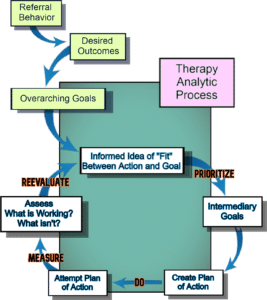PSYCHOLOGY MYTHBUSTING PSYCHOLOGY MYTHBUSTING
Psychology Mythbusting at your service! This ongoing series is focused on dispelling common misconceptions about mental health. We explore what to look for in a therapist, telling the difference between good and bad therapy, and the best ways to cope with stress. Not intended as a substitute for counseling or mental health advice. Intended for entertainment purposes only. If you are in need of therapy, please contact joeuppal@thewayaheadcounseling.com directly or schedle an appointment.

Myth of the Teapot Brain – Psychology Mythbusting Series – Chapter 1: Worse Than Useless
Psychology Mythbusting Series #1 – The Myth of the “Teapot Brain” Chapter 1: Worse Than Useless For many people there are two approaches to the regulation of strong emotions. I call these: Bottle Brain and Teapot Brain Bottle Brain is when you can’t handle an emotion so you repress it, pretend it doesn’t exist or otherwise ‘bottle it up.”
FOR YOUR EDIFICATION FOR YOUR EDIFICATION
For Your Edification is an ongoing series designed to teach fundamental psychological concepts that are explored in therapy. Here you can learn more about different therapies and some of the theories about how they work. Not intended as a substitute for counseling or mental health advice. Intended for entertainment purposes only. If you are in need of therapy, please contact joeuppal@thewayaheadcounseling.com directly or schedle an appointment.

Therapy Concepts – For Your Edification Series #1 -The Cognitive Triangle
For Your Edification Series #1: Therapy Concepts Chapter 1: The Cognitive Triangle The Cognitive Triangle pictured right is a foundational component of a therapy called Cognitive Behavioral Therapy or “CBT” for short. This very simple concept has a wide variety of applications. When someone talks about an emotion, they usually mean the feeling. So if I say

For Your Edification Series #2: Is My Therapy Helping Me? -the “Therapy Do Loop”
For Your Edification Series #2 – Is My Therapy Helping Me? Chapter 1: the “Therapy Do Loop” You come to therapy because you have a problem. You tried to do something about the problem. That something didn’t work. Now what do you do? The answer is obvious: something different of course! The Therapy Do Loop

For Your Edification Series #2 – Is My Therapist Helping Me? – Camel Therapy
For Your Edification Series #2 Is My Therapist Helping Me? Chapter 2: Camel Therapy So now, we are going to focus on the top part of that: (1) Referral Behaviors, (2) Desired Outcomes and (3) Overarching Goals. Then in the next Chapter we will go into the bottom half (the actual Do Loop itself) in
COLLEGE CORNER COLLEGE CORNER
College Corner! Articles on mental health and general well-being submitted by actual and TOTALLY HIP College Students!
College Corner – Mental Health Apps To Keep You Healthy in Isolation
“College Corner” by Bailey Woods Mental Health Apps to Keep You Healthy in Isolation While The Way Ahead Counseling, PLLC. is only able to serve Michigan patients, those both in the state and outside of it can always benefit from therapy. This article is both for our patients, who may benefit from a little extra
College Corner – Diaphragmatic Breathing
“College Corner” by Bailey Woods Diaphragmatic Breathing WHAT IS IT? Diaphragmatic breathing is not in any way “better” than the breathing you are used to, instead, it’s the breathing your body is made for. Deep breathing is the natural state of human breathing- technically we’re supposed to breathe through our Diaphragm. That’s why we have
ASK A THERAPIST ASK A THERAPIST
From Anonymous 03/24/20
I’m a college student and I feel that everyone around me doesn’t really empathize or “get” me. I feel like, being an out of state student, that I’m very isolated from home, but all of my peers are closed off and I just feel so alone. I think it’s starting to get to my school work and I don’t want to give up on college because of this. Is this even fixable? Also, I have a lot of friends with depression and anxiety and stuff that get help for their mental health, and they’ve kind of insinuated to me that “you just know” that you need therapy and you need to be, like, hallucinating or bottom of the barrel to get help. I don’t want to take away a spot from someone who really needs it. Who can get therapy? (Not just like a school counselor). Is this valid enough for my insurance and in general for me to get therapy?
Dear Anon,
I’m sorry to hear that you are feeling so alone. Feeling disconnected from others is a very common experience for people struggling with anxiety and depression. When you are struggling to face something yourself, it can feel almost impossible to share those parts of yourself with those around you.
Most people don’t understand what to say to someone who has depression or anxiety. They may not know how to help because they are struggling with these issues themselves. Sometimes they are afraid that they will just make the situation worse. Sometimes they are afraid that they won’t be able to handle it emotionally themselves, if they let you open up to them about your issues. So they avoid talking about it. We experience this as rejection–them being closed off to you–and so we avoid talking about it too. We fall into the trap of hiding away pieces of ourselves.
That is when we start feeling lonely even in a room full of our friends and family. Connection asks that you be vulnerable. Vulnerability asks that you be whole. When you can accept the darkest and most painful parts of yourself, that is when you will ‘get’ you. When you ‘get’ you, other people will have the opportunity to ‘get’ you too. This is something that is very difficult to do alone and usually happens with help from a professional.
To answer your question about your insurance, insurances nowadays are required to offer mental health coverage on parity with physical health. It is becoming more generally accepted that therapy is a healthcare need. Just like you wouldn’t want to wait until the pain of a broken arm became unbearable before getting it casted, you wouldn’t want to wait until you hit the ‘rock bottom’ of your depression before seeking help. I would contact the number on the back of insurance card to see what your benefits are exactly. Some insurances these days offer a certain number of outpatient mental health sessions per year no questions asked.
What your friends said about therapy is definitely not true in my experience. People from all walks of life can benefit from counseling. The reality is most people suffer in silence until the pain becomes unbearable. As a therapist, I find this to be a great tragedy. Too much time and happiness is sacrificed to a problem that is horrible and difficult, but ultimately fixable. To put an end to this pain is part of the reason I became a therapist.
I can’t tell you whether or not you are ready to seek counseling. Only you can decide that for yourself. What I can tell you is that there is no shame in getting help when you need it. You don’t need to tolerate misery. Hope this helps.
-Sincerely
-Joe Uppal, MSW, LMSW, CTP-C
Submit Your Question!
Ask anything and receive a response from our expert therapists! Questions and Answers will be published on our website with personal details removed. This is intended for entertainment purposes only. If you need counseling please contact joeuppal@thewayaheadcounseling.com directly or schedule appointment.

